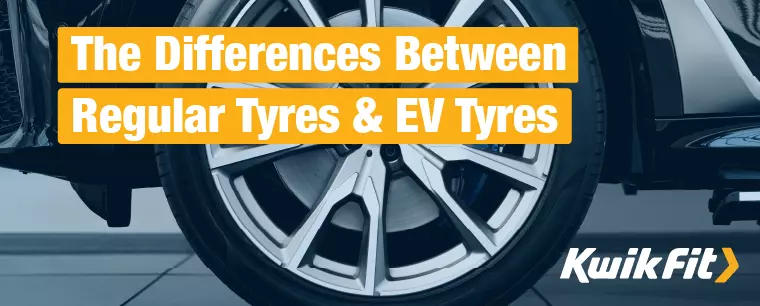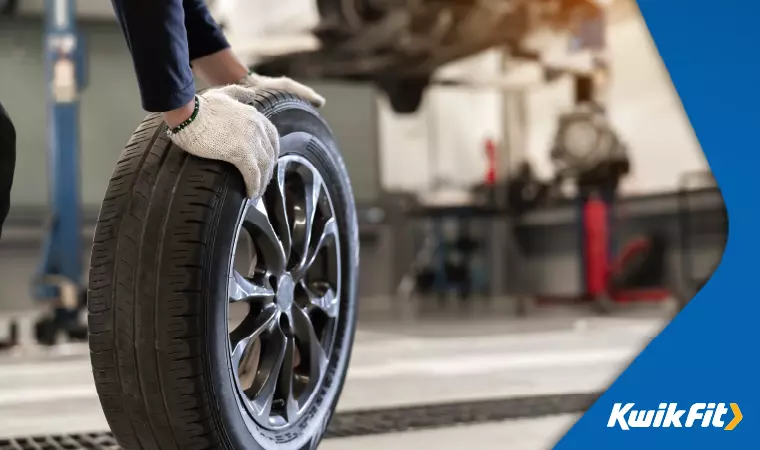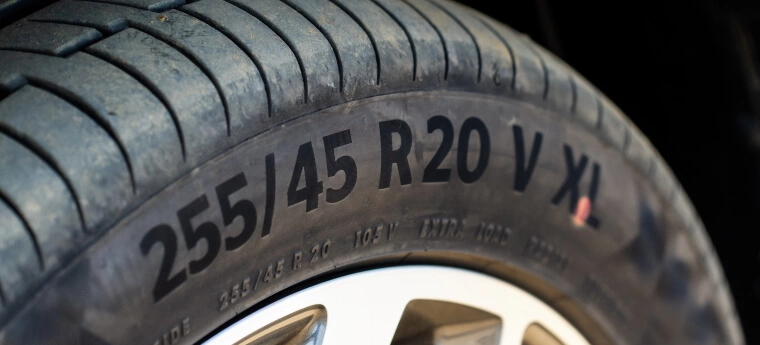The Differences Between Regular Tyres and Those Designed for EVs & Hybrids
| Thursday 15th June 2023 4:30pm

We all know electric and hybrid cars are different from their more traditional petrol and diesel counterparts. Thereís the obvious difference in battery for one, but what about when it comes to tyres Ė do electric and hybrid cars need different tyres from regular cars and, if so, what are the differences?
Legally speaking, electric and hybrid cars do not need to use EV-specific tyres. However, sticking to your old tyres may end up doing more harm than good. Electric and hybrid cars should opt for tyres that are heavier, quieter, and offer specific types of sidewalls to ensure they perform at their best. Tyres designed specifically for EV or hybrid vehicles offer improved performance and longevity for those types of vehicle.
But why is heavier, quieter, and sidewall(ier) better for electric and hybrid cars? Letís break it down.
Electric and hybrid tyres are heavier
The biggest difference youíll find with electric and hybrid tyres is that they are heavier than traditional tyres. This is because the tyres need to be able to accommodate the extra weight that electric and hybrid vehicles have thanks to the sizeable battery inside them.
A normal car battery typically weighs in at around 18kg, while the average electric car battery is around 454kg - a whole 25 times heavier! Thatís a whole lot of extra strain on your carís tyres, which is why electric and hybrid tyres are a lot heavier too to ensure they can take the weight.
You can work out how much weight your car tyres can take by knowing its load index, which is displayed as a number printed on the tyre. A tyre with a load index of 65 can hold a maximum load of 290kg, while a load index of 100 can hold 800kg. As such, electric and hybrid tyres will have a higher load index to ensure they can hold the weight of the car effectively. This not only helps with range, but can help avoid tyre blowouts.
Electric and hybrid tyres are quieter

One of the first things electric car drivers notice when they first drive is just how much quieter everything runs, which is one of the many reasons people are opting for them. This is largely the result of not needing an engine, which is typically the culprit for noisy cars.
However, when you remove an engine, you might be surprised at just how noisy your carís tyres can be as well! The noise of your tyres is often masked over the sound of a whirring engine, but once itís removed itís a lot easier to hear your tyres grind and roll as you drive around.
To help counter this, electric and hybrid car tyres are made with noise reduction in mind. There are various ways this can be done but most often, a foam inlay is set within the tyre, as well as additional rubber.
Electric and hybrid tyres use different sidewalls

All tyres have sidewalls - theyíre the part of the tyre that helps ensure the tyre remains attached to the rim when moving.
Many electric and hybrid tyres use very specific sidewalls, though - often made with the extra weight in mind to help absorb the additional strain electric and hybrid cars can place on the tyre.
The sidewall is also where your tyres load index can be found, as well as plenty of other useful information about your tyre.
Do electric vehicle tyres wear down faster?
With all this in mind, it would make sense to assume that electric vehicle tyres must wear down a lot faster than regular tyres. After all, they have to withstand a huge amount of weight. But the exact opposite is true!
With all the added weight, tyres on EVs would certainly wear down much faster if the tyres fitted were normal tyres designed for combustion engine vehicles. But EV tyres are designed to cope with the extra weight and more. Because electric vehicles are still a reasonably high-ticket investment, the tyres (usually designed by premium manufacturers) are arguably over-designed to offer less wear, a quieter drive, and better grip. In fact, EV tyres wear down around 30% less quickly than regular tyre counterparts.
Are electric vehicle tyres more expensive?
The other side of the over-engineered coin is that, at the point of purchase, electric tyres tend to be more expensive than regular tyres. But the price of a tyre isnít as simple as how much it costs to buy. Poor fitments, for example, can dramatically increase your carís fuel consumption, leading to hundreds more pounds needing to be spent on fuel over a year. For EVs, the same applies to range Ė thereís a significant range reduction when fitting lower quality tyres (or even forgetting to inflate the current tyres properly).
The dramatically reduced wear & increased range tend to mean that, over the course of their lifetime, EV & premium tyres work out cheaper than budget alternatives!
For quality tyres look no further than the experts
Be it traditional, electric, or hybrid, we know a thing or two about tyres here at Kwik Fit. Thatís why our team of experts are always on hand to help ensure your car performs at its best with tyres that work for you and your car.
For more information, check out our tyre availability by simply popping in your carís number plate. Alternatively, locate and contact your local Kwik Fit Centre today.
Any facts, figures and prices shown in our blog articles are correct at time of publication.
Featured Articles
Is it Illegal to Drive With One Headlight?
Saturday 19th July 2025
Wondering if itís illegal to drive with one headlight? Learn about the safety risks and penalties of illegal blown bulbs and why you should fix them promptly.
Air Con in EVs & Hybrids: Experts Answer Your Questions
Monday 30th June 2025
Does air con drain EV batteries? Can you use the air con while charging an electric car? Find out the answers to these questions & more from Kwik Fitís experts.
Why Is Your Car Making a Noise? Fixes & Tips
Friday 13th June 2025
When your car starts making unexpected noises, it can certainly be quite disconcerting; it may be nothing to worry about, but hereís what you need to know.









